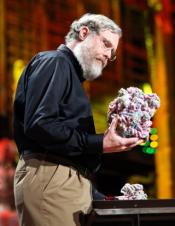A 'family spat' spills out in public, as scientists debate effort to build a human genome
By Andrew Joseph,
STAT News
| 06. 04. 2016
Untitled Document
NEW YORK — Harvard Medical School’s George Church and Stanford University’s Drew Endy are top scientists who have expanded the boundaries of biology with their pioneering discoveries. They have written papers together and even cofounded a synthetic biology company.
But over the past month, they have been cast as the opposing spokesmen in the debate over whether scientists should try to build human and other genomes from scratch, a project that could transform our understanding of the basic building blocks of life but that is fraught with ethical issues.
...
But the project raises thorny ethical questions. Although it’s not a goal of the project, in theory, brewing up a complete human genome could lead to the formation of an actual person, sans parents. The effort, in other words, picks at the most fundamental question of our identity: What does it mean to be human?
Continue reading on STAT News
Image via Wikimedia
Related Articles
By Arthur Lazarus, MedPage Today | 01.23.2026
A growing body of contemporary research and reporting exposes how old ideas can find new life when repurposed within modern systems of medicine, technology, and public policy. Over the last decade, several trends have converged:
- The rise of polygenic scoring...
By Stephanie Pappas, LiveScience | 01.15.2026
Genetic variants believed to cause blindness in nearly everyone who carries them actually lead to vision loss less than 30% of the time, new research finds.
The study challenges the concept of Mendelian diseases, or diseases and disorders attributed to...
By David Cox, Wired | 01.05.2026
As he addressed an audience of virologists from China, Australia, and Singapore at October’s Pandemic Research Alliance Symposium, Wei Zhao introduced an eye-catching idea.
The gene-editing technology Crispr is best known for delivering groundbreaking new therapies for rare diseases, tweaking...
By Josie Ensor, The Times | 12.09.2025
A fertility start-up that promises to screen embryos to give would-be parents their “best baby” has come under fire for a “misuse of science”.
Nucleus Genomics describes its mission as “IVF for genetic optimisation”, offering advanced embryo testing that allows...




